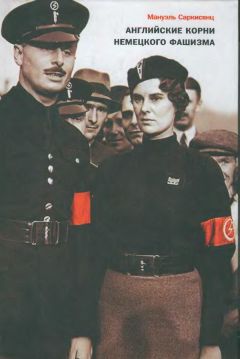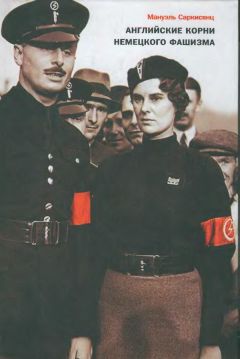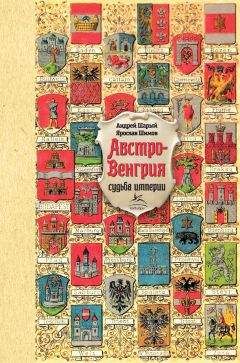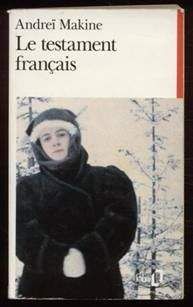35
William Blake, Jerusalem. The emanation of the Giant Albion, Chapter II, XXIV, 5: Prophetic Books of William Blake, edited by E. P. D. Maclagan and A. G. B. Russel (London, 1904), p. 31; Friedrich Brie, Imperialistische Stromungen in der englischen Literarur (Halle, 1928).
Alain and Cairns, Prelude to Imperialism. British Reactions to Central African Society, 1840–1890 (London, 1965), p. 238; MacDonald, Language of Empire, p. 153 f. Rutherford, Forever England. Reflections on Race, Masculinity and Empire (London, 1997), p. 15.
Lord Oliver, The Myth of Governor Eyre (London, 1933), p. 115; Missionary Hymns… of the London Missionary Society (London, 1830), p. 43 as quoted in Raphael Samuel (Editor), Patriotism. The making and unmaking of British National Identity, Vol. I (London, 1969), p. 194: John Wolffe, «Evangelicalism… in mid-ninteeth century England».
Mackenzie, Imperialism in Popular culture, p. 33; David Brion Davis, The Problem of Slavery in the Age of Revolution (Ithaca, N. Y, USA, 1977), p. 65; Peter Marsh, The Conscience of the Victorian State (London, 1979), p. 128; Alain and Cairns, Prelude to Imperialism (London, 1965), p. 238.
Alain and Cairns, pp. 246, 192.
Daunton and Halpern (Editors), The Empire and Others. British Encounters with Indigenous Peoples 1600–1850 (London, 1999), p. 365; Hill Schwarz (Editor), The Expansion of England. Race, Ethnicity and cultural History (London, 1996), p. 162; Thomas R. Trautmann, Aryans and British India (Los Angeles, 1997), reviewed in American Historical Review, Vol. CIV, No. 2 (April, 1999), p. 639.
Chris R. Vanden Bossche, Carlyle and the Search for Authority (Columbus, Ohio, USA, 1991), p. 137, quoting Carlyle, Collected Letters (Durham, 1970), 13: 192 and Carlyle, Reminiscences of my Irish Journey in 1849, p. 176; Robert Knox, The Races of Men (Philadelphia, 1850), 26, 216–220; 41. 89 f, 216, 253; Raphael Samuel (Editor), Patriotism, p. 196 (John Wolffe); Kathryn Tidreck, Empire and the English Character (London, 1992), p. 131.
Ibid., o. 257; J. M. Mackenzie, Imperialism and Popular Culture (Manchester, 1986), p. 5; Johannes H. Voigt, «Hitlerand Indien»; Vierteljahreshefte fur Zeitgeschichte, IX (1971), S. 33,49; Sidney Ball, Memories and Impressions of «an ideal Don». Arranged by Oona Howard Ball (Oxford, 1923), p. 211.
George Orwell, Collected Essays, Journalism and Letters, II (Harmondsworth, 1970), p. 95.
Richard Symonds, Oxford and Empire, pp. 55; cf. Vincent Harlow, The Historian and British Colonial History (Oxford, 1951), pp. 8, 9; Dickson A. Mungazi, The Last British Liberals in Africa: Michael Blundell and Garfield Todd (Westport, Conn., USA, 1999), cited in American Historical Review, Vol. CV, No. 5 (December, 2000), pp. 1845 f.
James A. Froude, Oceana. England and her Colonies (Leipzig, 1887), p. 44; Mackenzie, Imperialism and Popular Culture (Manchester, 1986), p. 41; Penny Summerfield, «Patriotism and Empire. Music Hall Entertainment».
Otto Gessler, in: Al Carthill, Die Erbschaft des Liberalismus (Berlin, 1926), S. IX; Esme Wingfield-Stratford, The Squire and his Relations (London, 1956), p. 92.
Ross McKibbin, Ideologies of Class. Social relations in Britain 1880–1950 (Oxford, 1991), p. 299, 288, 24, 275, 271 IT, citing R. Roberts, The classical Slum (London, 1974); C. F. G. Masterman, England after the War (London, 1922), pp. 54 f.; A. Finkel and C. Leibovitz, The Chamberlain—Hitler Collusion (Halifax, Canada, 1997), p. 38.
Patricia Meehan, The Unnecessary Win Whitehall and the German Resistance (1992), p. 24; John H. Clarke, The Call of the Sword (London, The Financial News, 1917), pp. 8, 15, 30 f, 33, 34, 52 f; Panikos Panayi, The Enemy in our Midst. Germans in Britain during the First World War (Oxford, 1991), pp. 172–177, 180 f, quoting J. H. Clarke, England under the Heel of the Jew (London, 1918), pp. 58–61, 65; Kirton Varley, the Unseen Hand (London, 1917), pp. 25 f, 44 f, 49 f, 52 ff, 72, 75, 88 f; Arnolf White, The Hidden Hand (London, Septemberand October, 1917); The Vigilante of 23. February, 2., 9. and 16. March, 1918, 26. April, 1918.
D. S. Lewis, Illusions of Grandeur. Mosley, Fascism and British Society 1931–1981 (Oxford, 1987), pp. 261 f; Robert Skidelsky, Oswald Mosley (London, 1975), p. 333; Richard Thurlow, Fascism in Britain (Oxford, 1987), p. 16; Brigitte Hamann, Hitler's Vienna (New York, 1999), p. 404 f.
Margaret George, The Warped Vision of British Foreign Policy 1933–1939 (Pittsburgh, 1965), p. VIII: Preface by R. Colodny; Ross McKibbin, Class and Culture. England 1918–1951 (London, 1998), p. 530.
N. Bethell, The War Hitler Won. September, 1939 (London, n. d.), p. 180; Ross McKibbin, ibid., p. V; E. P. Thompson, The making of the English working Class (1968), pp. 26 f; A. Finkel and C. Leibovitz, The Chamberlain—Hitler Collusion, p. 37, 38, quoting Margaret George, The Hollow Men (London, 1967), p. 66; Ellis Wasson, Born to rule. British political Elites (New York, 2000) reviewed in American Historical Review, Vol. CVII, No. 3 (June, 2002), p. 935; Philip M. Taylor, British propaganda in the twentieth century. Selling Democracy (Edinburgh, 1999), p. 91.
Peter Neville, Appeasing Hitler. The Diplomacy of Sir Nevile Henderson (New York, 2000), p. IX; Ross McKibbin, pp. 529, 290.
Richard Overy, Russia's War. Blood upon the Snow. (New York, 1997), pp. 60 f; John W. Wheeler-Bennett, King George VI. His Life and Reign (London, 1958), p. 347; Alvin Finkel and Clement Leibovitz, The Chamberlain-Hitler Collusion (1997), pp. 143, 148, quoting Neville Chamberlain's own notes.
Patricia Meehan, The Unnecessary War. Whitehall and te German Resistance to Hitler (London, 1992), pp. 4, 389 f. (FO 371/46790, in the files of the Foreign Office).
Sven Lindquist, «Exterminate all the Brutes» (London, 1996), p. 10; Schwetzinger Zeitung of 16. February, 1999: Ulrich Schilling-Strack, «Erst Lafontaine, dann Neumann».
Английское искусство управления государством было предметом зависти немцев, — отмечал в 1926 г. немецкий министр-демократ Отто Гесслер (прим. автора).
29 марта 1947 г. Хёсс был приговорен в Варшаве к смертной казни и несколько дней спустя казнен в Освенциме.
Немецкое издание этой книги вышло уже после английской публикации — в 1955 г. под названием «Elemente und Ursprunge totaler Herrschaft» (прим. автора).
Hannah Arendt, Elemente und Ursprunge totaler Herrschaft (Frankfurt, 1955), p. 292; pp. 177, 212 of the English version; Russland und Deutschland im 19. Und 20. Jahrhundert. Zwei Sonderwege… Herausgegeben von Nicolaus Lobkowicz… (Koln, 2001), S. 89; Charles Wenworth Dilke. The Greater Britain (London, 1894), p. 535; Herbert G. Wells, Works, Vol IV (London, 1924), p. 274; A. Toynbee, A Study of History, I (Oxford, 1935), p. 213.
Dietz Bering. Der Intellektuelle. Geschichte eines Schimpfwortes (Stuttgart, 1978).
Friedrich Lange, Reines Deutschtum. Grundzuge nationaler Weltanschauung (Berlin, 1904), S. 386f.
Daniel Gasman, The scientific origins of National Socialism. The Social Darwinism of Ernst Haeckel (London, 1971), pp. 127, 30, 131 f, 173.
Joachim Kohler, Wagners Hitler. Der Prophet und sein Vollstrecker (Munchen, 1997), S. 240, 241, 245 (Anm 50), 249, 251.
Жозеф Артур де Гобино (1816–1882) — французский социолог, писатель и публицист, один из основателей расистской теории и расово-антропологической школы в социологии.
Josephs Goebbels, Samtliche Fragmente (Munchen, 1987), Teil I, S. 72f, 178: Tagebuchnotiz vom 8. Mai 1926.
Volkischer Beobachter vom 5. September 1925: Paul Heyes, «Contribution of British intellectuals to Fascism», in Kenneth Lunn & Richard Thurlow, British Fascism. «An essay on the extreme Right in… Britain (London, 1980), p. 182.
Arnold Toynbee, A Study of History, Vol. I, p. 225.
Петерс Карл (1856–1918) — нем. колониальный деятель, основатель колонии Германская Восточная Африка, в 1891–1893 г. — рейхскомиссар этой колонии.
Гримм Ганс (1875–1959) — нем. писатель, автор романа «Народ без пространства», широко использовавшегося в нацистской пропаганде. Долгое время жил в Южной Африке, где занимался коммерцией.
«Наша цель — не Данциг, — заявил Гитлер 23 мая 1939 года. — Наша цель — расширение жизненного пространства на Востоке». И это пространство на Востоке должно было стать «германской Индией» (прим. Автора).
Carl Peters, Nationalpolitisches Vermachtnis. Der Deutsche und sein Lebensraum.
Herausgegeben von Hermann Bohme (Hannover, 1938), S. 46; Hans Grimm, Englische Rede. Wie ich den Englander sehe (Gutersloh, 1938), S. 7; Heinrich Himmler, Geheimreden 1933 bis 1945 und andere Ansprachen (Frankfurt, 1974), S. 78: Rede vor preusssischen Staatsraten am 5. Marz 1936; Adolf Hitler, Mein Kampf, Kommentierte Auswahl von Christian Zentner (Munchen, 1974), S. 221.
Hitlers Rede vom 28. April 1939: Sendungdes Deutschen Kurzwellensenders vom 28.IV. 1939.
Adolf Hitlers Zweites Buch, Ein Dokument aus dem Jahr 1928. Institut fur Zeitgeschichte, Quellen und Darstellungen zur Zeitgeschichte, Band VII (Stuttgart, 1961), S. xiv, 181.
Wahrhold Drascher, Vorherrschaft der weissen Rasse (Berlin, 1936), S. 205, 208. 4a. Reinhard Spitzy, So haben wir das Reich verspielt (Munchen, 1986), S. 146.
Wahrhold Drascher, Vorherrschaft der weissen Rasse (Berlin, 1936), S. 205, 208. 4a. Reinhard Spitzy, So haben wir das Reich verspielt (Munchen, 1986), S. 146.
Percy Ernst Schramm, Erlauterungen zu: Henry Picker, Hitlers Tischgesprache im Fuhrerhauptquartier 1941–1945 (Stuttgart, 1963), S. 94. Пикер Г. Застольные разговоры Гитлера / Пер. И. Розанова. Смоленск: Русич. 1993. С. 26.
Jan Colvin, Vansittart in Office, A historical survey of the origins of the second World War based on the papers of Vansittart (London, 1965), p. 346; J. Sydney Jones, Hitler in Vienna 1907–1913 (New York, 1983), p. 329; Hans W. Thost, Als Nationalsozialist in England (Munchen, 1939), S. 313.
Percy E. Schramm, op cit., S. 135: Tischgesprache vom 22. Juli 1941, nachts.
Hitlers Zweites Buch, S. 165.
Ernst Nolte, Krise des liberalen Systems und die faschistischen Bewegungen (Munchen, 1968), S. 202.
Gisela Lebzelter, in: P. Kennedy & A. Nicholls, Nationalist and racialist movement in Britain and Germany bevor 1914 (Oxford, 1981), p. 160.
Carl Peters, Die Grundung von Deutsch-Ostafrika, Kolonialpolitische Erinnerungen und Betrachtungen (Berlin, 1906), S. 33; Carl Peters, Nationalpolitisches Vermachtnis, S. 30, 14.
Hans Grimm, Heynade und England. Eine deutsch-englische Familiengeschichte der Jahre 1880–1923 (Lippoldsberg, 1969), Band I, S. 83, 87.
Carl Peters, England und die Englander (Hamburg, 1915), S. 201.
Gustave Le Bon, A que se debe la superioridad de los anglosajones? (Madrid, o.J.)
Еще до гордого заявления Френсена, что его «малое дело стало частью… большого дела фюрера, что он, горячо любимый фюрер… ценит это и., уважает (прим. автора). (Френсен Густав (1863–1945) — нем. писатель.)





